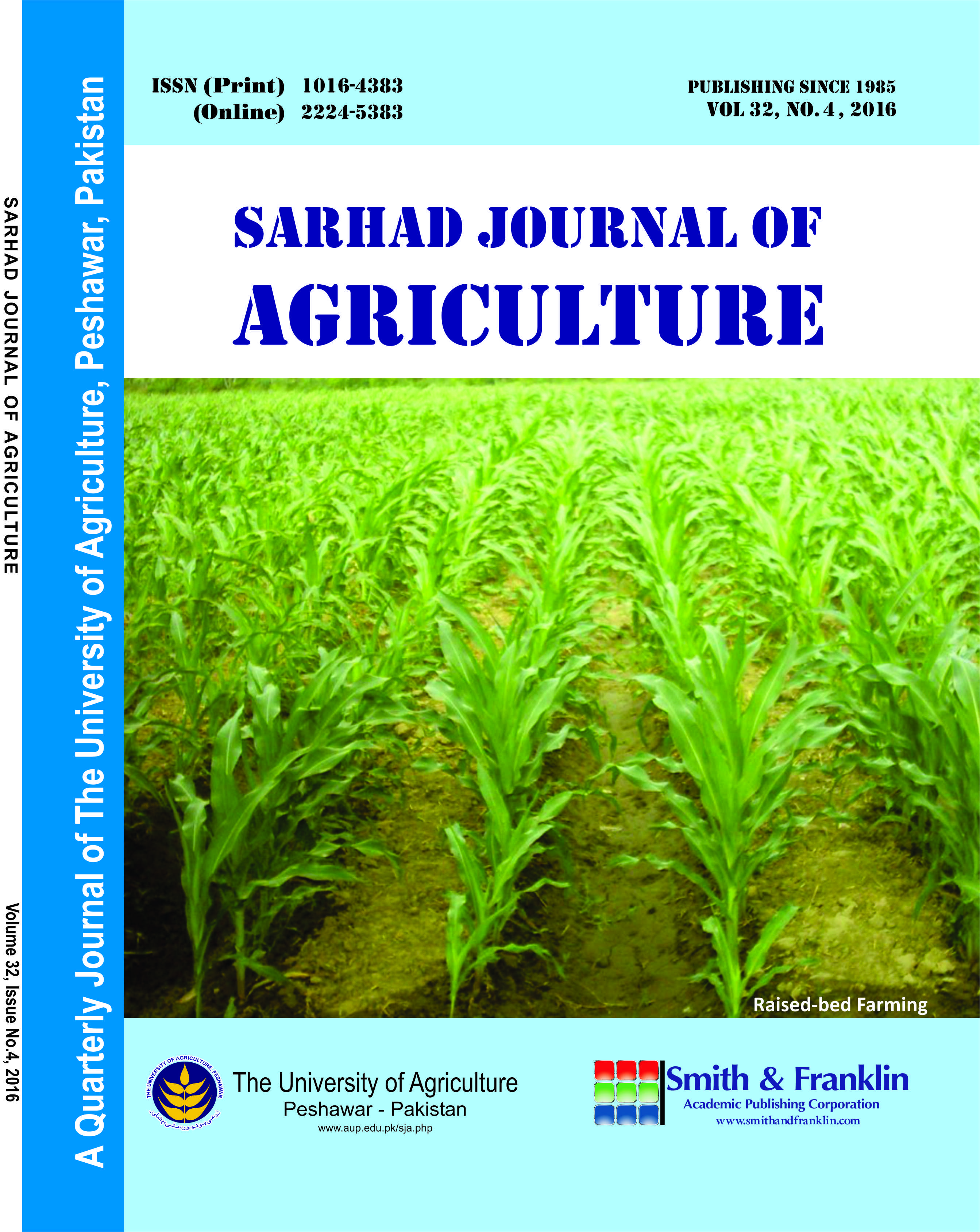Supply Response of Basmati Rice in Pakistan
Supply Response of Basmati Rice in Pakistan
Muhammad Azam Niazi1* and Umar Farooq2
ABSTRACT
The knowledge of responsiveness of the Basmati farmers to various stimuli is important for the policy makers to plan resource allocation and output of Basmati rice. Supply response analysis was carried out to quantify the response of farmers to price and non-price factors. Most of the literature on supply response of crops in Pakistan has relied on the assumption that the data series used for analyses were stationary while most of time series are in fact trended. This makes the results of many earlier studies unreliable. This study uses the modern time series approach of cointegration using Autoregressive Distributed Lag bounds testing. The bounds testing showed existence of a long run relationship between Basmati rice production and the regressors used in the study. The Basmati rice production showed a positive association with its own price. The response to fertilizer price was negative as per expectations. Tubewell availability had a positive effect on Basmati production. The Basmati rice had a speed of adjustment of 42 per cent showing that any deviation from the equilibrium would be corrected by 42 per cent in the current period. It is suggested that as Basmati rice supply reacts positively to an increase in its own price, its price stability should be ensured to have a consistent supply. The price of fertilizer (DAP) needs to be kept in check by keeping an eye on hoarding and black marketing. Mechanization can improve Basmati production and encouraging tubewells where ground water table allows sustainable use, should be encouraged to ensure timely water availability.
To share on other social networks, click on any share button. What are these?







